Sustainability
As a grower-owned company, we have a true connection to the produce that we market. Sourcing sustainable products is at the heart of our business, and working with like-minded growers is essential in our choice of partners.
Our main partner La Calera, also have a big focus on sustainability and their impact on the community and the environment.
With our charity work, the money we raise also goes towards giving back to the environment, local communities and causes around the world.
Installing Solar Power
La Calera has made significant strides in generating sustainable energy through the installation of solar panels. They have successfully installed 520 kWh of solar energy capacity to power their water irrigation pumps, with plans to increase this capacity to 1,200 kWh (1.2 MWh) in the next year. Initially, La Calera installed these solar panels in a remote area without access to an energy grid, and the system has been operating efficiently. Building on this success, they now aim to construct a large-scale solar panel complex to inject electricity directly into their grid, further enhancing overall energy efficiency.
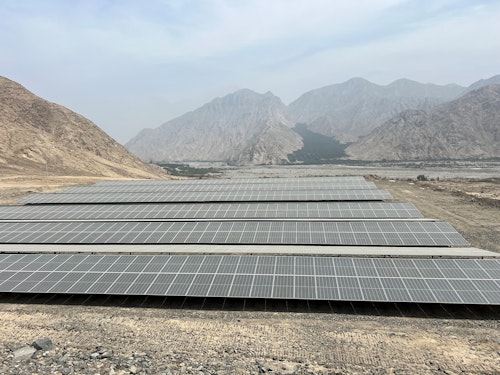

Casa Grande Social Housing
In 2009, La Calera created Casa Grande, a social housing project founded in response to the 2007 earthquake, which left many local people without adequate shelter. In June 2011, the first phase of this project, to create 1,000 new houses built to a high standard was completed. 520 houses were inaugurated by the President of Peru.
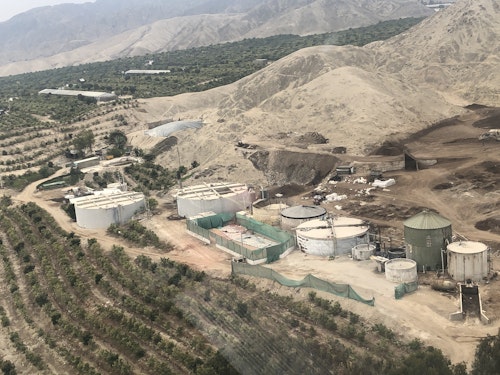
Biodigesters
La Calera began their bio digester project on the main farm in 2008. Following the completion in 2011, the farm is now 75% self sufficient in energy consumption. La Calera was subsequently awarded the Marks and Spencer Sustainability Award for 2011, in recognition of their "commitment to the communtiy, environmental stewardship, and sharing best practice with others".
The biogester works by using part of the chicken manure to generate biogas. The manure is mixed with water, and kept at stable temperature in an anaerobic environment. The bacteria ferments the manure into methane gas. This is a controlled system where the gas is filtered and then burned into generating electricity. The CH4+O2 is turned into CO2 + H2O. The CO2 being 24 times less damaging than the methane to the environment.
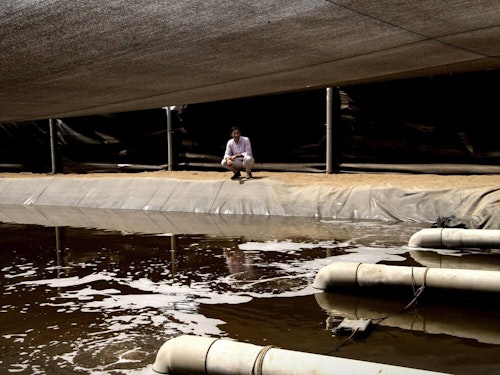
Sustainable Water Management
Sustainable water management is a critical focus on our Peruvian farms, given the region's diverse climate and agricultural demands. By utilizing advanced sensor systems, including drones, soil and tree sensors, we optimize irrigation efficiency by precisely understanding and responding to the water demands of our orchards. These methods ensure that crops receive precise amounts of water, enhancing growth while conserving this vital resource.
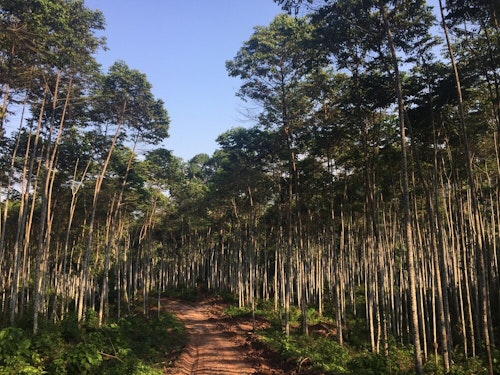
Reforestadora La Calera
In 2007 we created Reforestadora La Calera in order to plant and produce our own certified wooden pallets needed for the fruit export business.
204 hectares of Bolaina trees (Guazuma ulmifolia) in the jungle of Peru, near Puerto Inca. These trees yield a white soft wood that is used in the manufacturing of the wooden pallets.
About 40% of the pallets we use come from our own Bolaina plantations.
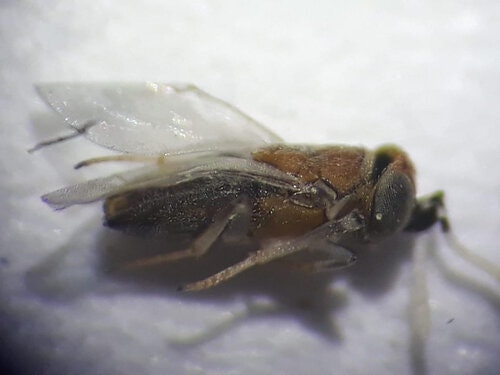
Intergrated Pest Management
Integrated Pest Management (IPM), is another sustainable farming practice we implement. Our process combines biological and chemical tools to manage pests in an environmentally sustainable manner. This approach minimizes the use of harmful pesticides, promoting a healthier ecosystem.
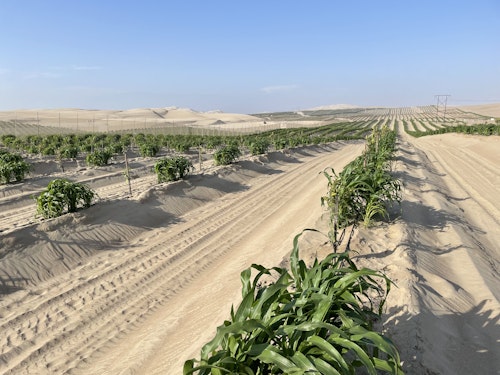
Desert Reforestation
Over 2,400 hectares of new orchards have been planted on barren desert land, creating an oasis of life in the middle of the Atacama Desert, the 'driest place on earth.' This effort has resulted in over 1.2 million newly planted trees, establishing new life biomes through the use of water-saving drip irrigation systems. La Calera have also been investing in water recycling, enabling them to treat wastewater and inject this back into the farms irrigation systems.
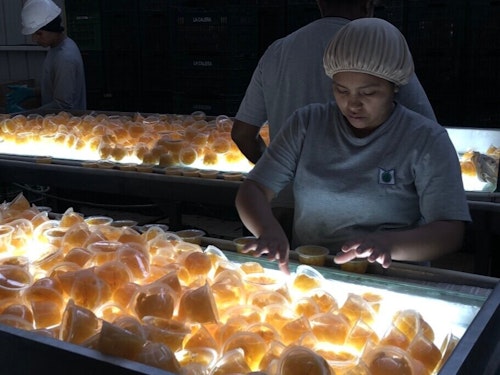
Mandarin Peel Recycling
La Calera innovatively recycles mandarin peels, converting this agricultural byproduct into balanced organic fertilizers. The mandarin peels are mixed with chicken manure from our egg farms, then fermented over 3 to 4 months to turn this mixture into the final compost. Compost is used in our nursery and also applied to all our fields, supplying a large proportion of nutrients and reducing the use of chemical fertilizers.
We are efficient with our fruit! Most mandarins are exported as fresh produce, the ones that are ‘ugly’, are processed into mandarin segments, thus making our crop more efficient and lessening our overall fruit waste.